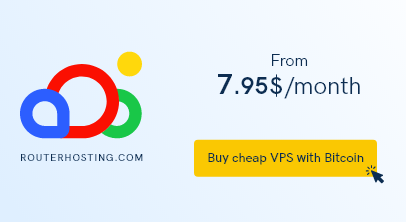
As we step into 2024, the digital landscape is more vibrant and competitive than ever. Choosing the right website builder is crucial for anyone looking to create an impressive online presence. Whether you’re starting a blog, launching an e-commerce store, or showcasing a portfolio, the right tools can make all the difference.
At the top of our list is the Elementor Website Builder, renowned for its versatility and deep integration with WordPress. Each builder on our list comes with its own set of unique advantages, ensuring that no matter your project’s requirements or your technical expertise, there’s a solution that fits. Join us as we explore these platforms that promise to make website building not just easy, but also enjoyable. With the right tools at your disposal, 2024 is the year to build your dream site and establish your mark on the World Wide Web.
Explore these Top 10 Website Builders in 2024:
1. The best no Code: Elementor Website Builder
Overview: Elementor has risen to prominence as a leading force in website creation, particularly for WordPress users. Its intuitive drag-and-drop interface allows users to craft professional-looking websites easily.
Pros:
- Extensive customization options without needing to know how to code.
- Large library of widgets and templates.
- Seamless integration with WordPress, enhancing managed WordPress hosting plans.
Cons:
- Mostly limited to WordPress users.
- Higher learning curve than some more basic builders.
Compatibility with Managed WordPress Hosting Plans: Elementor Website Builder enhances managed WordPress hosting plans by offering advanced design capabilities and efficient site management.
2. Wix
Overview: Wix is a user-friendly website builder known for its extensive template selection and versatile customization tools.
Pros:
- User-friendly interface with drag-and-drop functionality.
- Rich variety of templates suitable for various industries.
- Robust app market to extend site functionality.
Cons:
- Less control over site migration and higher-level hosting aspects.
- Can become pricey as add-ons accumulate.
Managed WordPress Hosting Plans Compatibility: While Wix is a standalone hosting solution, its comprehensive feature set provides a solid alternative to managed WordPress hosting plans for users seeking an all-in-one package.
3. Squarespace
Overview: Squarespace is celebrated for its sleek designs and strong e-commerce capabilities, making it ideal for small businesses and creatives.
Pros:
- Beautiful, award-winning design templates.
- Built-in tools for e-commerce and SEO.
- Responsive customer support.
Cons:
- Limited third-party integrations.
- Higher cost compared to other platforms with similar features.
Compatibility with Managed WordPress Hosting Plans: Squarespace offers a contained ecosystem, which might be seen as an alternative to managed WordPress hosting plans for users who prioritize design and simplicity.
4. Shopify
Overview: Shopify is a powerhouse in the e-commerce sector. It provides everything a business needs to start, manage, and grow an online store.
Pros:
- Comprehensive e-commerce tools and capabilities.
- Extensive app marketplace for expanding functionality.
- Strong customer support and community.
Cons:
- Transaction fees unless using Shopify Payments.
- Can be expensive for new businesses.
Managed WordPress Hosting Plans Compatibility: Shopify stands as a specialized alternative to managed WordPress hosting plans, focusing heavily on e-commerce.
5. Weebly
Overview: Weebly is a great choice for small businesses and personal websites because it is known for its simplicity and affordability.
Pros:
- Easy-to-use drag-and-drop interface.
- Affordable pricing with a free tier is available.
- Good range of design templates.
Cons:
- Limited customization options.
- Fewer features for scaling larger sites.
Compatibility with Managed WordPress Hosting Plans: Weebly is best for users who need simple sites without the depth that managed WordPress hosting plans offer with platforms like Elementor.
6. GoDaddy Website Builder
Overview: GoDaddy’s website builder is designed for those who want to get online quickly with minimal fuss.
Pros:
- Integration with GoDaddy’s hosting and domain registration services.
- Simple interface and setup.
- Mobile-optimized designs.
Cons:
- Limited design flexibility.
- E-commerce tools are basic compared to more specialized builders.
Managed WordPress Hosting Plans Compatibility: Suitable for users who prefer simplicity over the customizability provided by managed WordPress hosting plans.
7. BigCommerce
Overview: BigCommerce caters to online stores that aim for rapid growth and require scalable solutions.
Pros:
- Scalability for growing online stores.
- Strong SEO performance.
- Wide range of built-in features without the need for many plugins or extensions.
Cons:
- Complexity can be overkill for smaller operations.
- Higher cost structure.
Managed WordPress Hosting Plans Compatibility: BigCommerce offers a powerful alternative for e-commerce that might otherwise rely on complex managed WordPress hosting plans.
8. Adobe Dreamweaver
Overview: Tailored for professional web developers, Adobe Dreamweaver combines a visual interface with code editing capabilities.
Pros:
- Full control over web design and development.
- Supports multiple coding languages.
- Integration with other Adobe products.
Cons:
- Steep learning curve.
- Pricey for hobbyists.
Managed WordPress Hosting Plans Compatibility: Dreamweaver is ideal for developers who want more control than typically offered by managed WordPress hosting plans.
9. Jimdo
Overview: Jimdo is known for its AI-powered website creation tools, which make building a website extremely efficient.
Pros:
- Extremely user-friendly.
- AI-driven design choices.
- Quick setup process.
Cons:
- Limited creative control.
- Not suitable for highly complex sites.
Managed WordPress Hosting Plans Compatibility: Jimdo offers a streamlined alternative for basic site needs, diverging from the comprehensive capabilities of managed WordPress hosting plans.
10. Zyro
Overview: Zyro is a rising star in the website building space, known for its affordability and user-friendly interface.
Pros:
- Affordable with a very user-friendly interface.
- AI tools help with content generation and design.
- Lightweight and fast-loading websites.
Cons:
- Limited customization options.
- Newer on the market, fewer resources, and community support.
Managed WordPress Hosting Plans Compatibility: Zyro is a budget-friendly alternative for those who may not need the full spectrum of features offered by managed WordPress hosting plans.
Considering Factors When Choosing a Website Builder:
- Ease of Use: Consider whether the builder’s interface is intuitive. For example, Wix and Weebly offer drag-and-drop editors that simplify the design process.
- Flexibility: Evaluate if the builder allows for customization. Elementor, for instance, offers extensive widgets and templates that offer significant flexibility.
- Cost: Factor in your budget. While Shopify provides a robust platform for e-commerce, it can be more expensive than simpler platforms like Weebly.
- Features: Identify the features essential for your site. If you need strong e-commerce capabilities, Shopify or BigCommerce might be preferable.
- Scalability: Consider if the website builder can grow with your business. Platforms like BigCommerce and Shopify offer excellent scalability.
- Support: Check the level of customer support provided. Squarespace, for example, is known for its responsive customer service.
- Integration Needs: Consider what third-party integrations are necessary for your website. WordPress, with Elementor, provides vast plugin integrations.
Conclusion
Choosing the right website builder in 2024 is more crucial than ever as your online presence can significantly impact your project’s success. Each builder offers unique pros and cons, and the best choice depends on your specific needs, skills, and goals.
Choosing the right website builder is crucial as it lays the foundation for your online presence. With Elementor, you gain access to an extensive array of tools and plugins that enhance both functionality and aesthetic appeal, making it a top choice for anyone looking to create an impactful, dynamic website in 2024. Remember, the best website builder for you is the one that fits your specific needs, and for many, Elementor will be that perfect fit.
Among the standout options, Elementor Website Builder consistently shines, especially for users invested in the WordPress ecosystem. It combines power with user-friendliness, allowing you to effortlessly design and manage a professional-looking site. Elementor’s robust integration with WordPress ensures that you benefit from both the flexibility of the world’s most popular CMS and the intuitive design capabilities of a top-tier website builder.
FAQs
- Why is Elementor considered a top website builder in 2024?
- Elementor is favored for its deep integration with WordPress, extensive customization through drag-and-drop, and robust community and support ecosystem.
- Can I switch website builders easily if I change my mind?
- Switching website builders can be challenging, especially if moving from a platform like Wix or Squarespace, which uses proprietary technology. Always check for migration tools and support.
- How important are SEO features in choosing a website builder?
- SEO features are crucial for online visibility. Builders like Squarespace and Shopify offer built-in SEO tools that help optimize your site.
- What is a managed WordPress hosting plan, and how does it work with Elementor?
- Managed WordPress hosting plans provide optimized server configurations, security, updates, and expert support specifically for WordPress sites. Elementor enhances this by providing additional design flexibility and control.
- Are there free website builders?
- Yes, many platforms like Weebly and Wix offer free tiers, but these generally come with limitations like branding from the provider and fewer features.
- How do I know if a website builder is good for e-commerce?
- A good e-commerce website builder should offer features like product management, secure payment gateways, and inventory tracking. Shopify and BigCommerce are excellent choices for robust e-commerce functionality.
- What should I do if I need a lot of custom functionality?
- If customization is key, consider a platform that allows for extensive integrations and custom development. WordPress with Elementor is ideal for customization, supporting countless plugins and advanced features.




